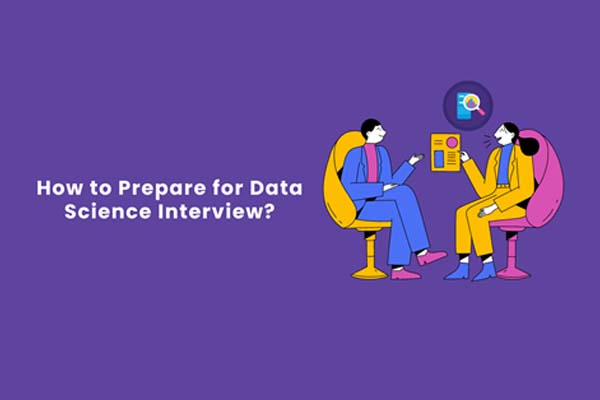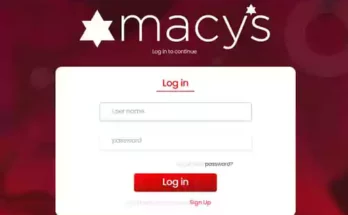
Nowadays, one of the most persued jobs is data science. Being ready for a data science interview may be exhilarating and nerve-wracking, regardless of your experience level or whether you’re just starting via a Data Science Course. In this blog we’ll go through the main tactics to help you get ready for your next data science interview, including takeaways from your data science course and crucial Data Science Interview Questions to ask.
Understanding the Data Science Landscape
It’s important to comprehend the data science field and the position you’re aiming for before you start interview prep. From complex machine learning and predictive modelling to data collecting and cleaning, data science covers a wide range of competencies and duties. Certain facets of data science may be the subject of your interview, depending on the company and the position.
It might be quite beneficial to join a data science course if you’re just getting started. These classes provide methodical learning pathways covering fundamental ideas, instruments, and methods. In addition to providing you with the information you need, finishing a data science course gives your CV a useful certification.
Key Steps to Prepare for a Data Science Interview
Let’s prepare for the interview using this key steps:
- Review the Foundations: Get ready by going through the data science foundations once again. Review probability, statistics, and linear algebra. Learn the fundamentals of data manipulation tools like Pandas and NumPy, as well as programming languages like Python and R.
- Learn Data Analysis: The foundation of data science is data analysis. Practise data visualisation, data cleansing, and exploratory data analysis (EDA). Real-world datasets may be shown to you during the interview in order to gauge your capacity for deriving insightful conclusions.
- Modelling and Machine Learning: Have a solid understanding of machine learning methods and algorithms. Recognise when and how to use techniques like clustering, decision trees, and linear regression. Understand how to assess the performance of a model using measures like F1-score, recall, accuracy, and precision.
- Coding Skills: During your data science interview, be prepared for coding difficulties. Practise data manipulation, feature engineering, and algorithm implementation coding tasks. Use the materials in your data science course to improve your coding abilities.
- Domain Knowledge: Industry-specific domain knowledge may be essential. Get acquainted with the statistics and difficulties unique to the healthcare, financial, or other industries before your interview.
- Case Studies and Projects: Discuss case studies and projects from your data science course as well as personal experiences to demonstrate your practical abilities. Prepare an eloquent and brief explanation of the goals, process, and results of your project.
- Soft Skills: Good communication and cross-functional teamwork are two things that data scientists are often expected to do. During the interview, emphasise your soft abilities, such as communication, cooperation, and problem-solving.
Data Science Interview Questions: What to Expect
These are some typical data science interview questions you should be ready for. However, the exact ones you get will probably differ:
- Describe Overfitting: What is machine learning overfitting, and how can it be avoided?
- Difference between Bias and Variance: Explain the terms in relation to machine learning models. How are they to be balanced?
- A/B Testing: Describe the procedures that go into carrying out an A/B test. How do you assess the findings’ significance?
- Feature Engineering: What is it, and why is it relevant to the preparation of data?
- SQL Queries: To get information from a database table, write a SQL query. Be ready to answer inquiries on database administration and SQL procedures.
- Time Series Analysis: Describe a time series’ constituent parts and how you would predict its future values.
- Talk about the ethical issues in data science, particularly when working with sensitive data.
- Big Data: What are your methods for managing huge datasets that won’t fit in memory? Which methods and instruments are available for big data analysis?
- Company Impact: Give an example of a project in which a company or organisation benefited greatly from your data analysis. What conclusions did you draw?
- Algorithm Selection: In which situations would you choose to use a decision tree instead of a logistic regression model?
- Model Evaluation: Describe the idea of cross-validation and the reasons why it is necessary.
- List some of the key Python libraries used in data science, along with their corresponding uses.
Mock Interviews and Practice
Consider taking part in practice interviews as you get ready for your data science interview. Ask your teachers, mentors, and other students in your data science course for their opinions. You may increase your confidence and pinpoint areas for growth with the aid of mock interviews.
Practise resolving actual data science case studies and challenges as well. Numerous datasets and challenges are available on online platforms and resources to put your talents to the test.
Conclusion
A thorough procedure, including academic understanding, practical skills, and good communication, is needed to prepare for a data science interview. You may put yourself on the road to success by putting your Data Science Course insights to use in addition to careful planning and practice. Keep in mind that every interview is a special chance for you to demonstrate your skills and enthusiasm for data science. You’ll be well-equipped to succeed in the field of data science if you approach it with confidence. Visit Our Site.
You May Want To Read: What Is Amazons GPT44x: Everything You Show Now About It


